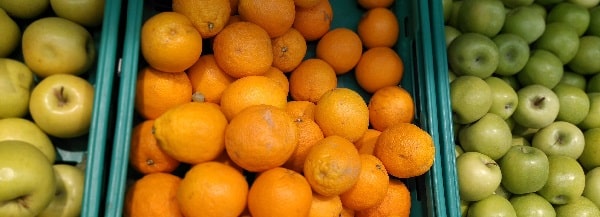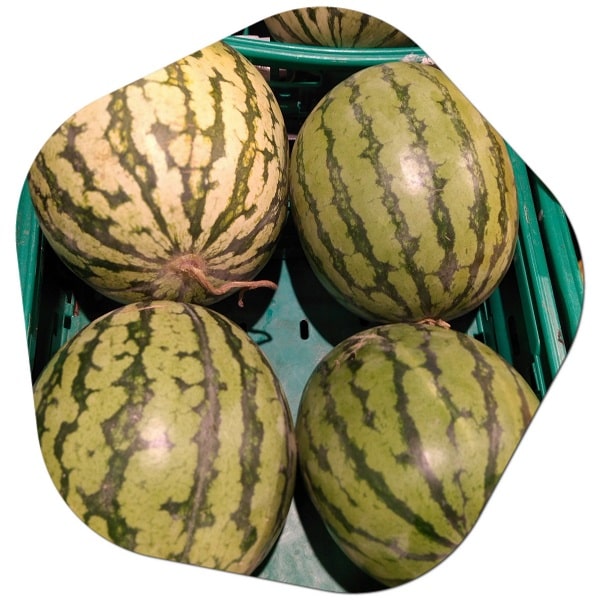Which fruits have all the vitamins and minerals?
Fruits rich in the mineral potassium: Bananas, apricots, raisins, dates, watermelon and avocados. Minerals are vital for a healthy life and a healthy body. Minerals that cannot be produced by the body and are taken in through food have important effects on cell protection, dental health, bone structure, blood pressure, heart rhythm and many other body functions. Minerals, which work together with vitamins in the body and are transported to the areas where they are needed, are concentrated in milk and dairy products, vegetables, fruits and cereals.
No single fruit contains all the vitamins and minerals required for a balanced diet. Different fruits offer varying combinations of nutrients, and a diverse diet that includes a variety of fruits is essential to ensure you’re getting all the necessary vitamins and minerals.
Here are some common fruits and the key vitamins and minerals they provide:
- Citrus Fruits (Oranges, Grapefruits, Lemons, Limes): These fruits are rich in vitamin C, which supports the immune system, skin health, and wound healing.
- Bananas: Bananas are a good source of potassium, which is important for maintaining proper fluid balance, muscle function, and nerve signals.
- Berries (Strawberries, Blueberries, Raspberries, Blackberries): Berries are packed with antioxidants, such as vitamin C and various phytochemicals, which help protect cells from damage.
- Avocado: Avocado is rich in healthy fats, particularly monounsaturated fats, and also provides vitamins E, K, and B6, as well as folate.
- Kiwi: Kiwi is a great source of vitamin C, vitamin K, and dietary fiber.
- Mango: Mangoes are high in vitamin A, which is important for vision, immune function, and skin health.
- Papaya: Papaya is rich in vitamin C, vitamin A, and folate. It also contains enzymes like papain that aid digestion.
- Pomegranate: Pomegranates are rich in antioxidants, such as vitamin C and various phytochemicals, and provide a good amount of dietary fiber.
- Watermelon: Watermelon is hydrating and provides vitamins A and C, as well as some B vitamins and potassium.
- Guava: Guava is high in vitamin C, dietary fiber, and vitamin A.
- Apples: Apples provide dietary fiber and vitamin C, along with various antioxidants.
- Pineapple: Pineapple contains vitamin C and manganese, which is important for bone health and enzyme function.
- Cherries: Cherries offer antioxidants like vitamin C and anthocyanins, which have anti-inflammatory properties.

Remember that while individual fruits may be rich in specific nutrients, it’s important to consume a wide variety of fruits and other foods to ensure you’re getting a balanced intake of vitamins, minerals, and other essential nutrients. A diet that includes a rainbow of fruits and vegetables will help you meet your nutritional needs. If you’re concerned about your nutrient intake, it’s a good idea to consult a registered dietitian or healthcare professional for personalized guidance.
Which fruit or vegetable has all vitamins?
No single fruit or vegetable contains all the vitamins in sufficient quantities to meet all of your nutritional needs. Vitamins are diverse compounds, each with specific functions in the body, and they’re found in varying amounts in different foods. Consuming a variety of fruits and vegetables is essential to ensure you’re getting a wide range of vitamins and minerals.

While no single food can provide all vitamins, here’s a general overview of some fruits and vegetables and the vitamins they are particularly rich in:
- Spinach and Kale: These leafy greens are rich in vitamins A, C, and K, as well as folate and various B vitamins.
- Bell Peppers: Bell peppers, especially the red ones, are high in vitamin C. They also contain vitamins A and B6.
- Citrus Fruits: Fruits like oranges, grapefruits, lemons, and limes are well-known for their high vitamin C content.
- Sweet Potatoes: Sweet potatoes are a good source of vitamin A (in the form of beta-carotene) and also provide vitamin C and B vitamins.
- Carrots: Carrots are rich in beta-carotene, a precursor to vitamin A. They also contain vitamins C and K.
- Broccoli: Broccoli is a good source of vitamins C and K and also provides some B vitamins.
- Berries: Berries like strawberries, blueberries, and raspberries are rich in vitamin C and various antioxidants.
- Tomatoes: Tomatoes are a good source of vitamin C and also provide vitamin A and the antioxidant lycopene.
- Papaya: Papaya is high in vitamin C and also contains vitamin A and folate.
- Mango: Mangoes provide vitamin C and vitamin A, particularly in the form of beta-carotene.
- Kiwi: Kiwi is rich in vitamin C and also provides vitamin K and dietary fiber.
- Cabbage: Cabbage contains vitamins C and K, as well as some B vitamins.
- Guava: Guava is particularly rich in vitamin C and also provides dietary fiber.
- Avocado: Avocado offers vitamins E, K, and some B vitamins, along with healthy fats.
Remember that a balanced diet is crucial to meeting your nutritional needs. No single food can provide everything your body requires, so it’s important to consume a diverse range of foods, including a variety of fruits and vegetables, whole grains, lean proteins, and healthy fats. If you have specific dietary concerns or are seeking personalized advice, consider consulting a registered dietitian or healthcare professional. Can all vitamins be found in one fruit? >>





